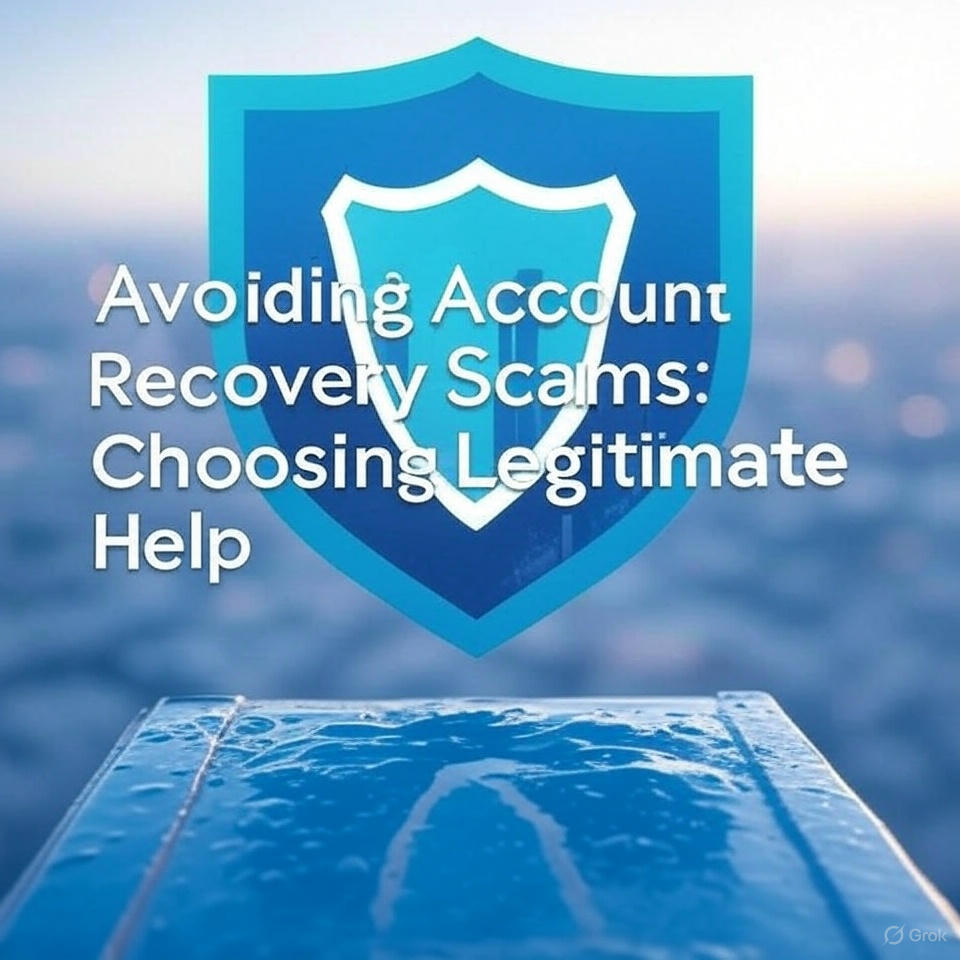Account lockouts can derail your productivity and cause major stress. Unfortunately, shady operators exploit this vulnerability with account recovery scams promising instant results. Avoiding account recovery scams starts with knowing the red flags, understanding legal risks, and selecting certified professionals. In this guide, you’ll learn how to sidestep scams and secure reliable, ethical solutions for restoring access. Let’s dive into proven strategies that protect both your data and your wallet.
Why Understanding Avoiding Account Recovery Scams Matters
-
Protect Your Data: Scammers often steal credentials instead of restoring accounts.
-
Avoid Legal Consequences: Hiring illegal hackers exposes you to potential prosecution.
-
Prevent Financial Loss: Fraudulent services charge upfront and vanish without help.
-
Maintain Reputation: A breach of your professional or personal accounts can harm trust.
By focusing on avoiding account recovery scams, you safeguard your identity and savings. According to the Federal Trade Commission, identity theft led to over 1.4 million complaints in 2024, causing nearly $8.8 billion in losses .
Common Tactics Used in Account Recovery Scams
Unrealistic Promises and Upfront Payments
Scammers lure victims with guarantees of instant results. They often demand large upfront fees. Legitimate experts bill by the hour or after delivery.
Fake Testimonials and Phony Reviews
Beware of glowing testimonials on anonymous forums. Scammers use AI‑generated reviews to appear credible. Always verify reviewer identities.
Unverified Contact Channels
Scam sites often list generic email addresses or instant‑messaging apps. Certified firms provide official business emails, phone numbers, and clear service contracts.
Legal Risks of Hiring Illegal Hackers
-
Criminal Charges: Unauthorized account access violates the Computer Fraud and Abuse Act.
-
Data Breach Liability: You may be held responsible if a hacker exposes personal data.
-
Civil Lawsuits: Victims of hacker‑caused breaches can sue you for damages.
-
Blackmail Threats: Illegal hackers often turn extortionate after initial access.
The Department of Justice prosecuted over 600 cybercrime cases in 2024, emphasizing risks tied to illegal hacking assistance . Avoid legal peril by choosing certified, transparent services.
Hire a Hacker for Account Recovery: What You Need to Know
How to Select Legitimate Account Recovery Help
Verify Professional Certifications
Look for credentials like CEH, OSCP, CISSP, or CISM. Certified professionals adhere to ethical standards and recognized frameworks such as NIST SP 800‑63 .
Check Written Agreements and Scope
A valid account recovery service will provide a clear Statement of Work. The document should outline:
-
Services provided
-
Legal compliance
-
Confidentiality clauses
-
Payment terms
Read Independent Reviews
Consult trusted platforms like the Better Business Bureau or industry forums. Confirm that past clients received promised results without hidden fees.
Request Transparent Reporting
Legitimate experts deliver logs, proof-of-action, and post‑recovery recommendations. They’ll educate you on securing your account long term.
Many businesses turn to legitimate account recovery services offered by Hire A Hacker Expert for transparent, documented results.
Best Practices for Avoiding Account Recovery Scams
-
Always Research Before You Pay: Verify website domain age and ownership via WHOIS lookup.
-
Use Official Support Channels First: Try platform‑provided recovery options before third‑party services.
-
Limit Shared Information: Never provide full credentials or private keys to unknown parties.
-
Enable Multi‑Factor Authentication (MFA): Reduce the need for emergency recovery by using MFA.
-
Keep Secure Backups: Regularly archive recovery codes in encrypted vaults.
Implement these steps to minimize reliance on recovery services. If you do need help, follow the guide above to ensure you’re not falling for account recovery scams.
Frequently Asked Questions
Q1. What red flags indicate an account recovery scam?
A: Unrealistic guarantees, large upfront fees, anonymous contact info, and AI‑generated reviews are key warnings. Always seek certifications and transparent processes.
Q2. Can I recover my own account without professional help?
A: Yes. Start with official support pages, reset via trusted email or SMS, and use platform‑provided backup codes. Only escalate if these options fail.
Q3. How much do legitimate recovery services cost?
A: Costs vary by complexity and hourly rates. Ethical firms bill after delivery or in milestones. Expect transparent quotes before work begins.
Q4. Are internal IT teams safe for account recovery?
A: Yes, if they follow documented security protocols. For complex cases—like encrypted backups—they may defer to certified ethical hackers.
Additional Resources
-
FTC Identity Theft Resources: Get tips on avoiding scams and securing your identity
-
NIST Digital Identity Guidelines: Learn best practices for secure authentication
-
CISA Tips: U.S. Cybersecurity and Infrastructure Security Agency advice on fraud prevention
Conclusion
Avoiding account recovery scams hinges on vigilance, research, and partnering with certified professionals. By spotting red flags, understanding legal risks, and following best practices, you’ll protect both your digital assets and your reputation. When in doubt, trust established providers like Hire A Hacker Expert’s legitimate account recovery services. Restore access safely, legally, and with lasting security in mind.



No responses yet